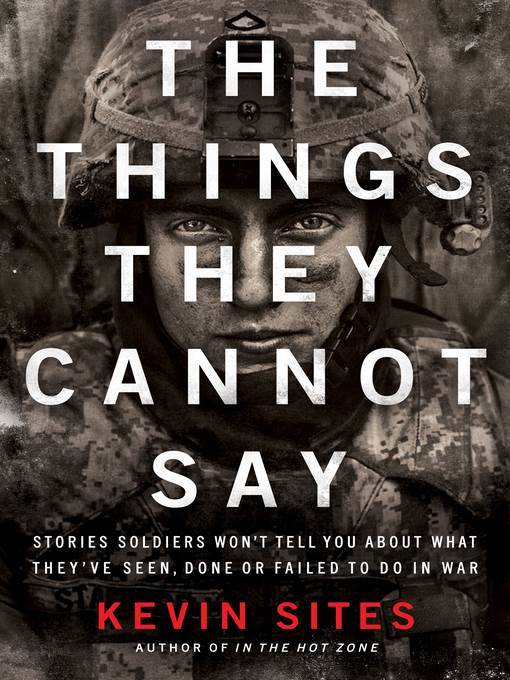
The Things They Cannot Say
Stories Soldiers Won't Tell You About What They've Seen, Done or Failed to Do in War
کتاب های مرتبط
- اطلاعات
- نقد و بررسی
- دیدگاه کاربران
نقد و بررسی

October 8, 2012
In this riveting and emotionally raw debut, award-winning journalist Sites profiles 11 soldiers (including members of non-American militaries) to explore what it feels like to kill, “be shot, bombed or burned in combat,” and how one goes on living after the fighting dies down. Sites opens candidly with his own experience, describing how a moment of journalistic indifference in 2004 resulted in the murder of a captured Iraqi insurgent, a tragedy the author dwells on intermittently throughout the book. Drawing from interviews and military records, Sites goes on to tell the stories of veterans of the wars in Vietnam, the Persian Gulf, Iraq, Afghanistan, and, in the case of his own father, WWII. Whether stationed in sultry jungles, urban streets, or rugged mountains, soldiers are asked to endure intense physical and mental traumas, and while common threads weave throughout these stories, each is unique: one describes the horror of witnessing the crucifixion of a deceased North Vietnamese Army officer; another tells of the guilt that accompanies friendly fire. But these gripping stories do not equal “an indictment against hope”; they are evidence of a profound desire to heal. Photos.

November 1, 2012
Veterans from Vietnam to Iraq and Afghanistan--including Sites himself as a war correspondent (In the Hot Zone: One Man, One Year, Twenty Wars, 2007)--tell their tales of the struggle to survive on and after the battlefield, in the hopes that such storytelling may be a way "to release warriors from the bonds of their own silence." Lance Cpl. James Sperry writes, "I am only twenty-four and have lived a life I wish on no one." Such is the common thread of despair to be found among these warriors' tales. In combat, they did and saw things no one should endure. They killed--the enemy, civilians, their own troops as a result of friendly fire. They saw friends blown apart, and they were wounded. They grew rabid with anger and a desire to kill. Then they were expected to return to friends, family and community unchanged from these horrors. But this was not possible, as veteran after veteran experienced PTSD. Too often in silence, combat veterans suffered from an inability to reconnect, to love, to be simply normal. Sites includes himself among the lost, as he recounts how his "confused incompetent inaction" led to the murder of Iraqi insurgent Taleb Salem Nidal. Sites thus joined the ranks of those suffering from PTSD--covering guilt, shame and fear in a haze of alcohol and marijuana, numbed by taking "a chef's salad of [prescribed] drugs every day," losing wives and loved ones who could not understand their sullen withdrawal. However, in sensitive, honest prose, the author emphasizes that this is a book about hope. Most of the wounded warriors eventually found their way back, including Sites, and part of the healing process involves telling their stories. The author allows himself and the combat veterans he interviews the space to do so. An important book for warriors and the communities that send them to war.
COPYRIGHT(2012) Kirkus Reviews, ALL RIGHTS RESERVED.

December 1, 2012
Sites is an award-winning print and television journalist who has reported on many of the recent military conflicts for several media outlets. He has compiled accounts by 11 soldiers who served in various war fronts, including Iraq, Afghanistan, Vietnam, and even WWII. What emerges from their stories is a grim, often horrifying portrait of the trauma of modern warfare, which, inevitably, leaves scars, seen and unseen, on participants. Of course, for some, there is an adrenalin rush fueled by danger and the constant struggle to survive. More often, these men recount intense fear, physical and mental pain, and gnawing guilt that may never fully dissipate. This is tough stuff, as many of the experiences recounted here are graphic, cruel, and bloody, but they offer an intimate look at the costs of war on a personal, elemental level.(Reprinted with permission of Booklist, copyright 2012, American Library Association.)

























دیدگاه کاربران